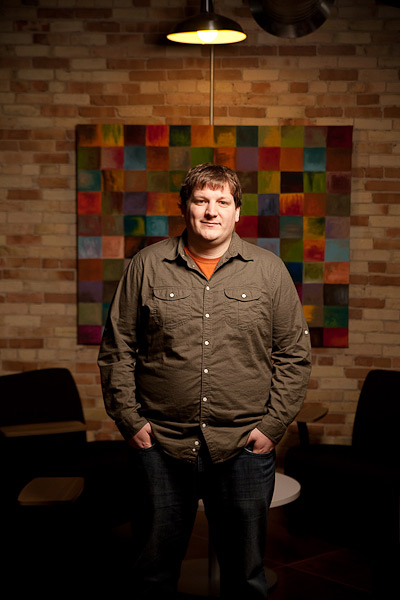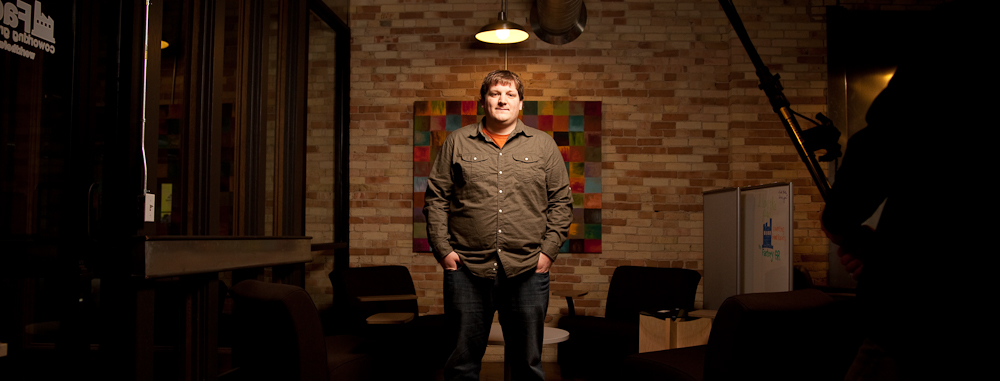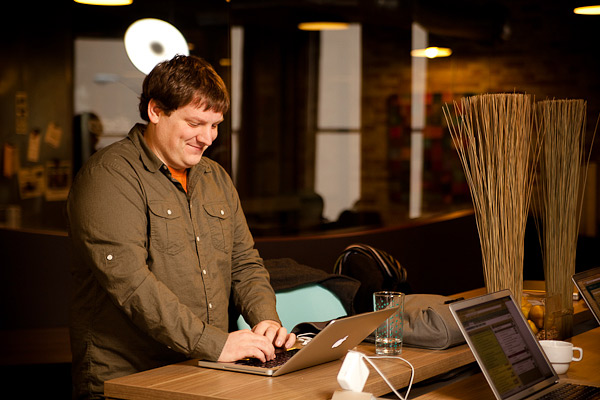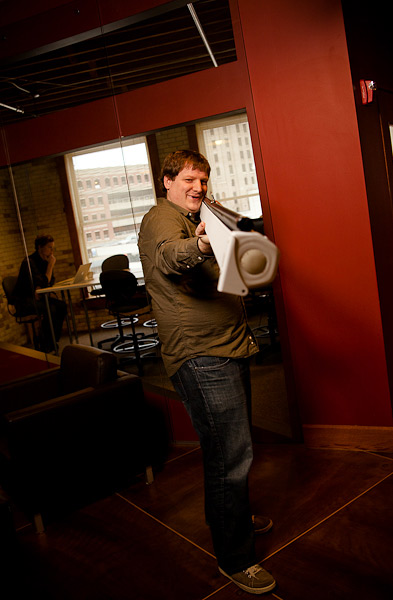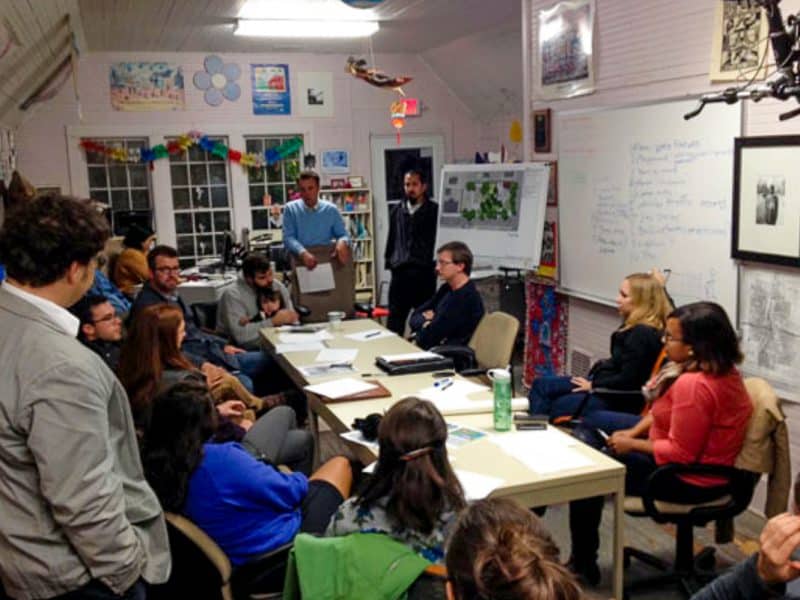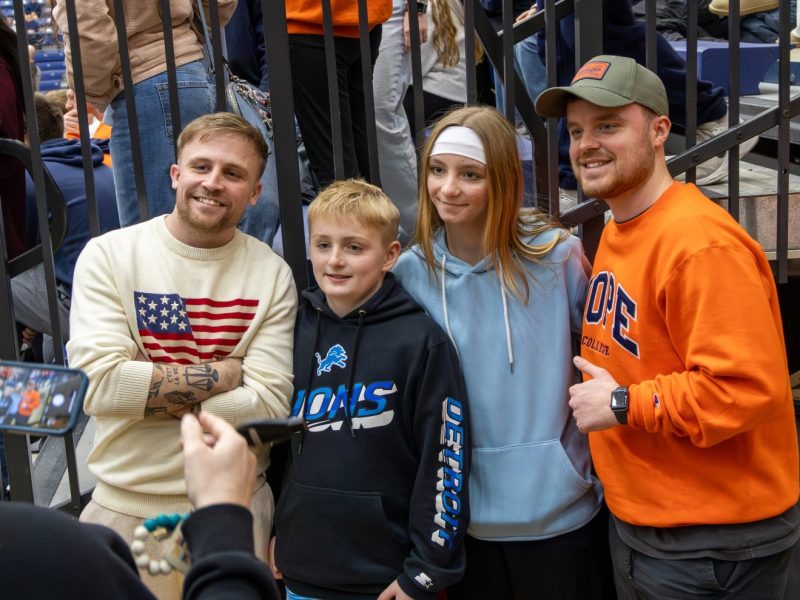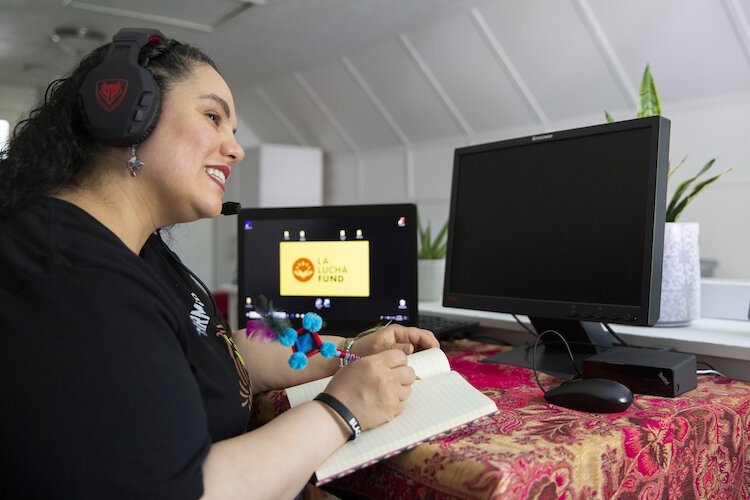Give and Take
It’s not a stretch to reuse things instead of pitching them in the trash, says Brandon Keepers, creator of a new website called Blue Bin that hopes to link the haves with the have-nots.
When Mark Van Holstyn moved into a house he bought in September in Grand Rapids, the former owners left behind some items that he didn’t want and probably couldn’t sell easily — light fixtures, blinds, marble countertops.
Putting these useful items out with the trash was also out of the question for Van Holstyn, 25. While contributing the items to charitable organizations such as Goodwill and the Salvation Army were an option, he decided to try a new Internet based reuse service called Blue Bin founded by a Holland entrepreneur that aims to make it easy to link givers with takers.
Van Holstyn has gotten mixed results from Blue Bin as the items that he posted are still looking for a new home, but he picked up a countertop radio that he wanted through the system. “Overall it’s a been a positive experience and we will keep using BlueBin, ” says Van Holstyn, partner and software developer at Mutually Human Software in Grand Rapids.
Reuse instead of refuse
Brandon Keepers thinks there may be a significant untapped market nationally by serving people like Van Holstyn — computer savvy individuals who are looking for an alternative to Freecycle and other websites that facilitate the reuse and recycing of unwanted items.
So Keepers launched his Blue Bin website last summer to improve upon flaws that he sees in Freecycle model of recycling. Others apparently like his approach. Keepers won the Lakeshore Advantage/Elevator Up Pitch Night Competition last October after he explained the business model of Blue Bin to an audience of about 100 people. Pitch Night serves as a local platform for entrepreneurs to practice their investor “pitch” and get feedback from people in the business community on how to move their business ventures forward.
“Winning the competition really helped,” says Keepers, 27, a web application developer at Collective Idea , a Holland-based software development company. “Many folks in the audience were enthused about the concept, which kept me fired up. It also helped keep the momentum going after the initial excitement of the launch only a few months earlier.”
Himself a former user of Freecycle, Keepers agrees wholeheartedly with the mission of the grassroots online organization that was founded to promote reuse of items and reduce waste going to landfill. Deron Beal started Freecyle.org in 2003 as a Yahoo! group with less than 30 members to help promote recycling in Tucson, Ariz. After one year, there were a million members, and now the network has nearly 7 million members worldwide that help reuse an estimated 700 tons of material a day.
But he says that the use of Freecycle can be a “painful experience” after listing an item on the service because a person can be inundated with e-mails in response to the posting. On the other side of the equation, a person interested in a particular item may get barraged with e-mails about unrelated goods. “I knew I could make the user experience better,” Keepers says.
Reducing clutter
Jodi Schaap, 26, joined Blue Bin about four months ago after she heard about the service from her husband Aaron, who is a founder of the Elevator Up organization that co-sponsored Pitch Night. “He came home and just mentioned that I should check it out,” Schaap says. “I’m kind of a Craigslist fiend so he’s always looking out for new things to try and telling me about them.”
Like the Keepers, Schaap was also active with Freecyle before becoming frustrated with the user experience, which she terms as “terrible.” As a believer in recycling and reuse, she uses Craigslist for items that have value in selling, and when time allows, she will also make the cross town drive to a Goodwill location in Holland. However, she thinks that it may be easier and convenient to list items on Blue Bin, reducing household clutter on her own schedule.
“So far I’ve gotten rid of children’s toys and books on Blue Bin,” she says. “My overall impression of the site is very good. I’m impressed with the look of the site, compared to the other “free” sites out there — the user experience is about 1,000 times better. It’s easier to read through, browse and the contact back and forth with prospective ‘buyers.'”
Blue Bin takes its name from the ubiquitous blue recycling boxes found throughout neighborhoods that are used to recycle paper, plastic and glass items instead of sending them to dumps. According to Keepers, Blue Bin has 515 registered users from more than 70 cities and between 600-700 unique visits per week.
Although the site does not list the number of current members, Keepers is working to add this information in the near future. “My plan to add the number of members in specific communities versus an overall member count. It’s one of those things on my ‘to-do’ list,” he says.
Working the web
What differentiates the Blue Bin experience is its web-based design, Keepers says, which allows individuals to post products for exchange without being bombarded with e-mails as they would on Freecycle, thanks to search criteria such as specific items of interest and geographic radius from their homes. They are still are notified by e-mail on Blue Bin, but only on items that fall under the specific search criteria, he says.
Keepers says Blue Bin does not have the on-line traffic to generate income at this point, and the only overhead of running the site is his sweat equity and modest costs for hosting the service. However, he acknowledges that to sustain this venture there will need to be multiple revenue streams.
The current plan is to keep building membership through promoting the site using social media tools such as Facebook. Besides word-of-mouth and social media, Keepers has just begun using Google Adwords for an on-line advertising presence. He also plans to print some flyers and posters to be used locally to promote the service. The overall goal is to build the membership base of Blue Bin so that it can sustain itself, then hopefully add Blue Bin to the Collective Idea family of businesses.
“There are creative advertising models that I will explore when the service takes off, Keepers says. These could range from online advertising to a classified ad business model. In the meantime, Brandon is exploring ways to improve the user experience by developing “some type of reputation tool to help identify top reusers.”
John Rumery is an instructor of entrepreneurship at Grand Valley State University, blogger, raconteur and championship barbecuer living in Grand Rapids.
Photos:
Brandon Keepers, creator of new Internet based reuse service called Blue Bin (4)
Photographs by Brian Kelly -All Rights Reserved

